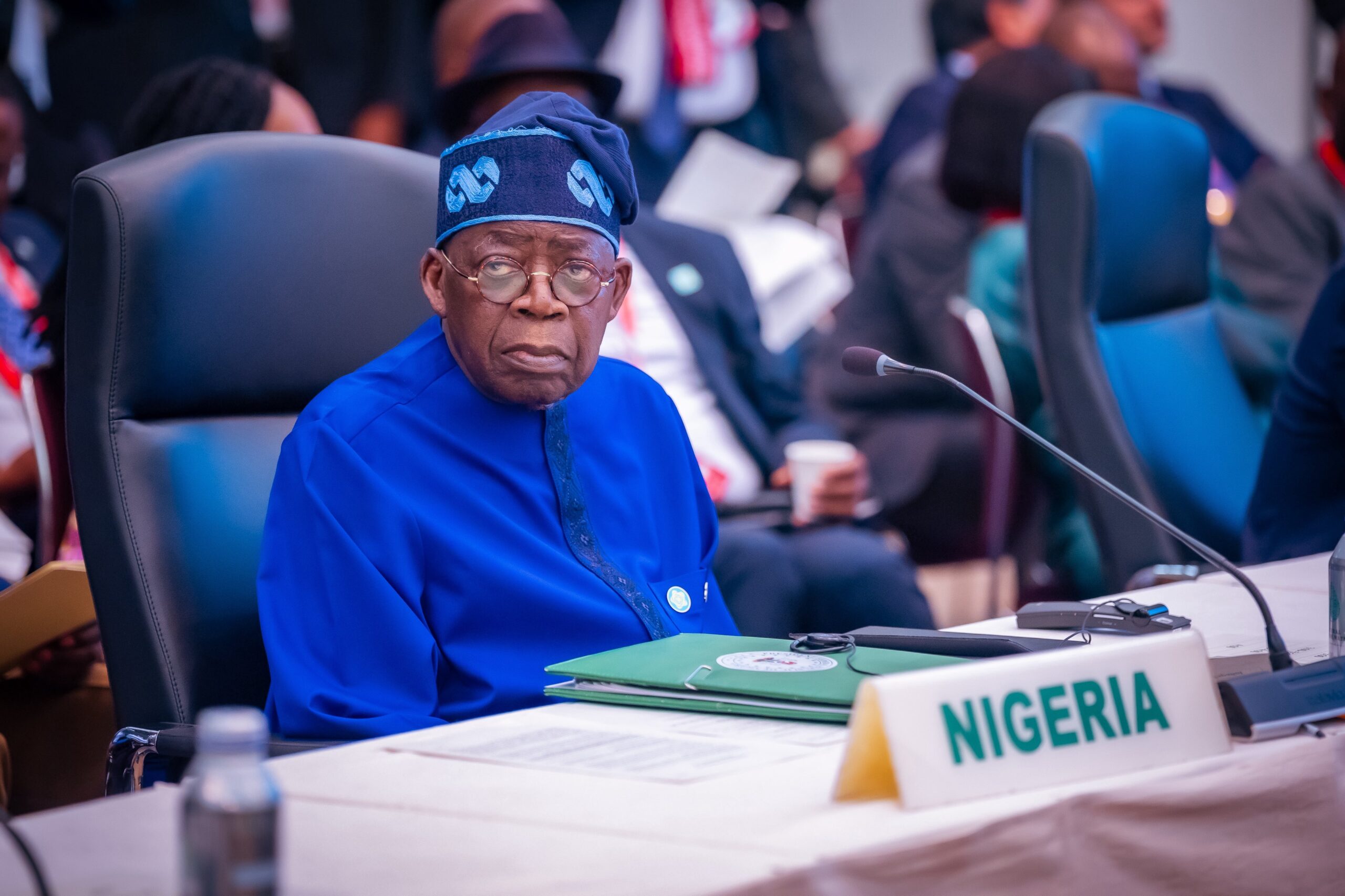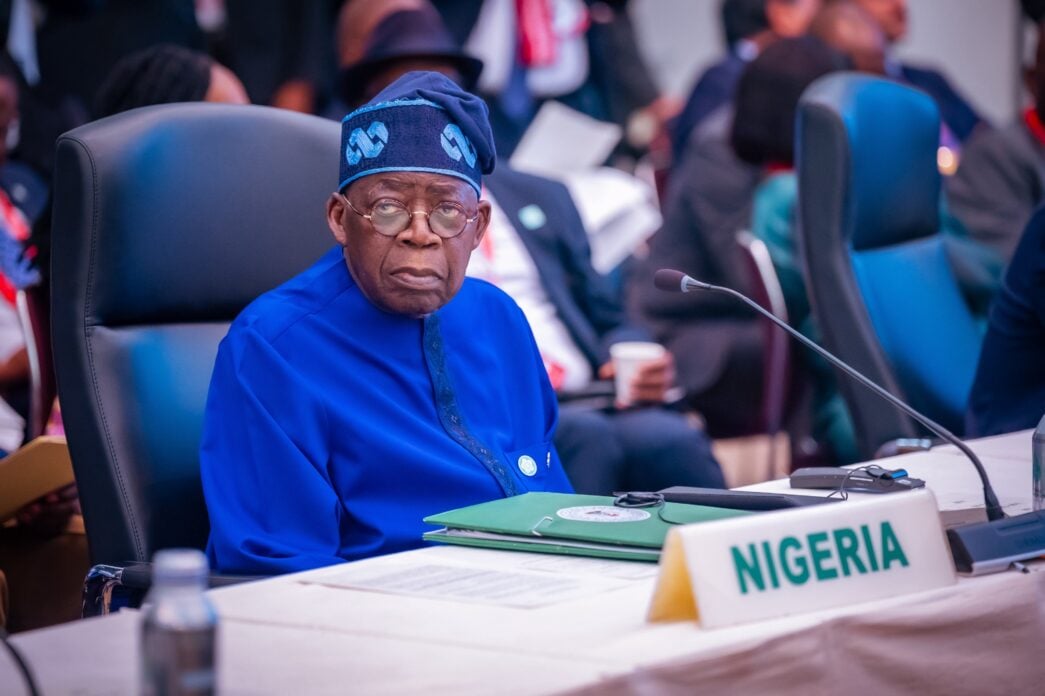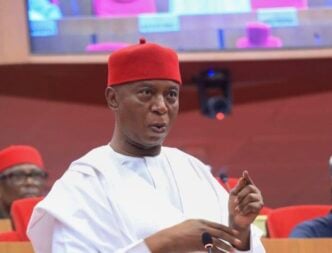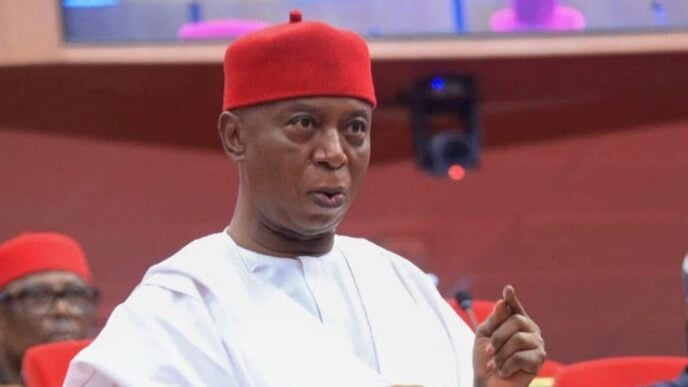The National Orientation Agency (NOA) says Nigeria’s debt profile has “significantly decreased” since President Bola Tinubu took office in 2023, contrary to widespread misconceptions.
In an explainer dated October 24, the NOA said misinformation has created a false narrative about Nigeria’s debt burden, but scientific data from Nigeria’s Debt Management Office (DMO), Central Bank of Nigeria (CBN), ministry of finance, and Federal Inland Revenue Service (FIRS) reveal a different story.
The agency also based its claim on data from the National Bureau of Statistics (NBS), International Monetary Fund (IMF), and the World Bank,
NOA said the misinformation has created a false narrative about Nigeria’s debt burden, however, scientific data from trusted local and international sources show evidence to the contrary.
Advertisement
According to the NOA, Nigeria’s total public debt as of June 2023 was $113.42 billion, with a debt-to-GDP ratio below 40 percent, which is considered sustainable by the International Monetary Fund (IMF) and the World Bank.
The explainer noted that by December 2024, Nigeria’s total public debt had actually declined to approximately $94.22 billion, a reduction of over $19 billion in just 18 months.
“The reduction in Nigeria’s debt shows that the federal government is actively managing its borrowings and repayments,” the NOA said.
Advertisement
“Instead of accumulating more debt, Nigeria has been making down payments of some of its loans and avoiding unnecessary new borrowings. This is a positive sign of fiscal responsibility.”
However, on October 12, DMO said Nigeria’s total public debt reached N152.39 trillion as of June 30, adding that it increased by N3 trillion or 2.01 percent, compared to the N149.39 trillion reported in March.
‘NIGERIA’S DEBT SERVICING CONSUMED ALMOST ALL GOVERNMENT REVENUE BEFORE TINUBU ADMINISTRATION’
According to the NOA, before Tinubu’s administration came on board, Nigeria’s debt servicing was consuming almost all government revenue.
The report showed that in the first half of 2023, nearly 97 percent of the federal government’s revenue was swallowed up by debt servicing, leaving little room for other essential expenditures.
Advertisement
“By the end of 2024, this ratio had improved to 68 percent, and it has reduced to less than 50 percent by the second quarter of 2025,” NOA said.
“While still high, this is a significant improvement, showing better fiscal management and increased government revenue.”
The federal government, the NOA said, has demonstrated a strong commitment to meeting its debt obligations, exemplified by repaying a $3.26 billion IMF loan within two years and spending around $7 billion on external debt servicing in the first 18 months of the Tinubu administration.
The agency said despite manageable debt, Nigeria faces economic difficulties due to over-reliance on volatile oil revenue, but the government is working to boost non-oil revenue through improved tax collection and reduced leakages.
Advertisement
“In the first half of 2024, non-oil revenue increased by 30 percent compared to the same period in 2023,” the agency said.
“The NCS collected N1.3 trillion in the first quarter of 2025, more than double the N600 billion collected in the same period in 2023.
Advertisement
“This remarkable increase is a testament to the federal government’s renewed focus on strengthening revenue mobilisation without raising tax rates.”
NOA said Nigeria’s economy has shown signs of recovery and growth, driven by efforts to diversify beyond oil.
Advertisement
The explainer noted that the World Bank projected Nigeria’s GDP growth at 3.7 percent for 2024, driven by agriculture, telecommunications, and services, marking the highest growth in a decade excluding post-pandemic rebounds.
Also, the report said the government is investing in infrastructure projects, supporting agriculture, and promoting the digital economy and SMEs to create sustainable revenue streams and reduce dependence on oil.
Advertisement













